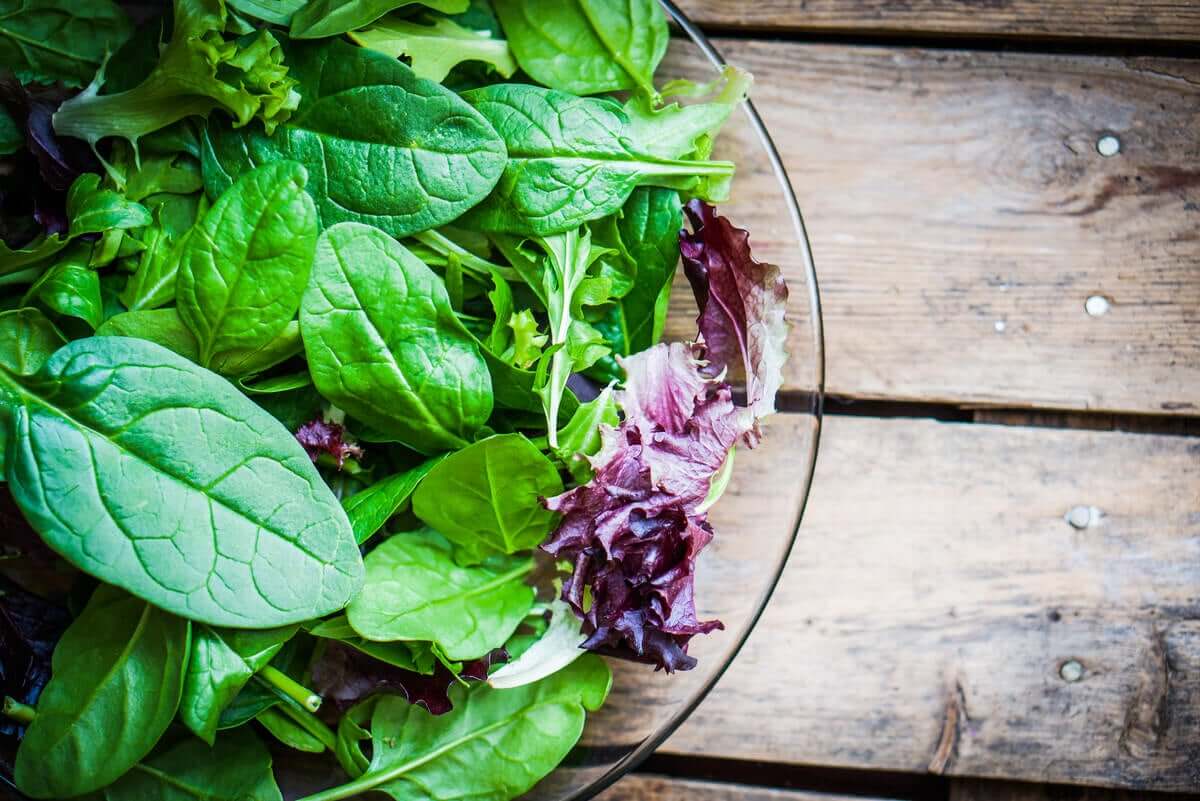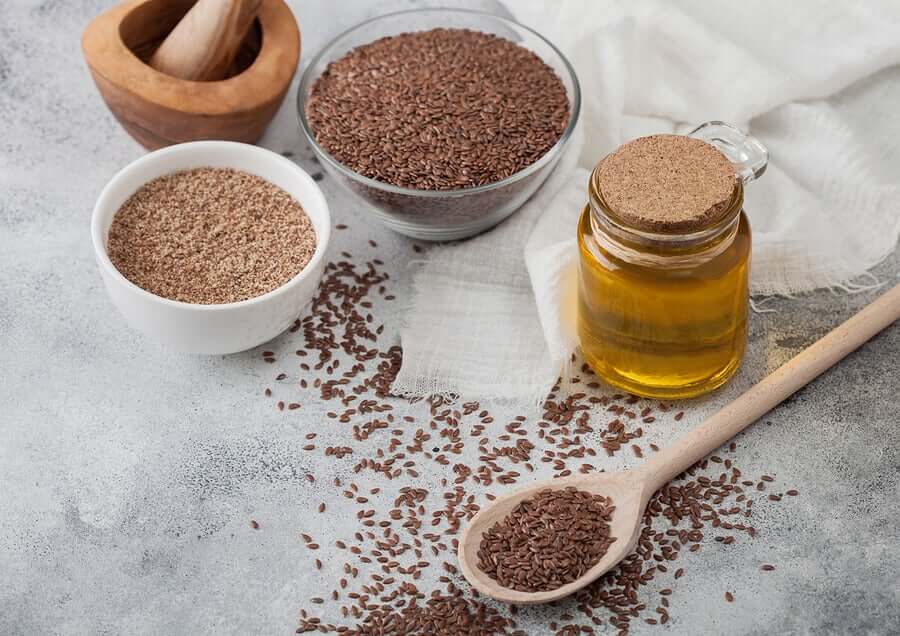7 Supplements That Vegans Should Take


Written and verified by the nutritionist Maria Patricia Pinero Corredor
Many people have the firm belief that the vegan diet is a totally healthy eating plan. They’re not entirely wrong, as research backs the benefits of fruit and vegetable consumption. However, depending on the type of diet, some nutritional deficiencies may occur, to a greater or lesser extent. Therefore, there are certain supplements that vegans should take.
It’s important to remember that a vegan diet isn’t the same as a vegetarian diet. Vegetarians, while they don’t consume meat or meat products, can consume eggs and dairy (ovolactovegetarian) or only dairy (lactovegetarian). On the other hand, vegans exclude from their diet all kinds of foods of animal origin.
Consequently, the scope of the nutritional requirements of this type of diet is at the expense of those we can get from plants. Therefore, vegans must resort to supplements to obtain those nutrients that can only be obtained in optimal quantities through animal products.
With that in mind, we want to tell you about 7 supplements that vegans should take.
What are the nutritional deficiencies that can cause a vegan diet?
Gibson, in a publication in The American Journal of Clinical Nutrition, emphasized that a vegan diet should recommend fortified foods to improve the bioavailability of certain nutrients such as minerals. The most critical nutrients are as follows:
- Omega-3 fatty acids
- Iron
- Zinc
- Calcium
- Iodine
- Vitamin D
- Vitamin B12
In vegetables, phytic acid and tannins trap minerals, thus reducing their absorption and use. Calcium deficiency can affect bone integrity. The nutritionist Rojas Allende points out that bone mineral density (BMD) is lower in vegetarians than in omnivores. Therefore, it increases the risk of fracture in vegans by 10%.
Another deficiency in the vegan diet is vitamin B12. Its deficit ranges from 40% to 90% among different age groups of vegans, according to the Chilean Journal of Nutrition. Low intake of B12 can affect the blood system, skin, mucous membranes, and even the nervous system.
Studies in the United Kingdom also determined that vegans are more deficient in vitamin D, as it comes mainly from fish.

7 supplements that vegans should take
In a vegan diet, there are critical nutrients that you should take to meet your needs. That way, you’ll avoid possible nutritional deficiencies and health risks.
At the same time, you should take into account certain recommendations to improve the use of these nutrients present in vegetables. Which are the most important? How can you get them? Keep reading!
1. Vitamin B12
Vitamin B12 is essential for the regeneration of bone marrow and red blood cells. Also, it participates in the metabolism of the central nervous system and the synthesis of DNA.
In a vegan diet, you can get vitamin B12 from fortified foods such as grains, vegetables grown with organic fertilizers, pickles, or fermented foods that have been prepared with bacteria and yeast.
The daily requirement is 2.4 mcg for adults. If your doctor prescribes supplements, then you should take at least 10 mcg daily or 2000 mcg weekly according to the Spanish Vegetarian Union. Today, medical societies still recommend supplements for these types of diets.
2. Vitamin D
Vitamin D behaves like a hormone and influences calcium metabolism. By improving calcium absorption for bones, you can prevent osteoporosis in adults and rickets in children. The daily requirement in adults is 5 mcg and can reach 15 mcg for those over 70.
You can Vitamin D supplements as cholecalciferol or D3 in fish oil or as D2 if it comes from a plant source. In the latter case, you should take 1000 mcg per day. Of course, you can also synthesize this nutrient through exposure to sunlight, at least 3 times a week.
It’s important that the sun reaches as much skin as possible and that it’s free of sunscreen. In case the exposure is insufficient, or if you eat a vegan diet, you must take supplements.
Like this article? We think you may also like to read: Vitamin Deficiencies that Cause Fatigue
3. Calcium
Calcium performs structural functions in the bones, teeth, and metabolic health, such as the regulation of the nervous system and heartbeat. The daily requirement for an adult is 1000 mcg per day.
In vegan diets, non-absorbable complexes, such as phytates and oxalates, trap some calcium. Their intake is usually below the daily recommendations.
Some changes in the preparation of vegetables, especially legumes and cereals, can increase their bioavailability.
Cooking, soaking for at least 8 hours, germination, and natural fermentation with wild yeast can activate the phytase enzyme within the seed. This releases the calcium trapped in the phytate, allowing for its absorption.
4. Omega-3 fatty acids
Omega-3s are adjuvants in the prevention of cardiovascular disease, diabetes, and immune system diseases. Vegetables don’t contain docosahexaenoic acid (DHA) or eicosapentaenoic acid (EPA), but they do contain omega 3 alpha-linolenic acid (ALA). The body can only convert about 10% of this fatty acid to DHA or EPA. Therefore, their intake should be higher in vegan diets.
Experts also recommend avoiding the excess use of corn, sunflower, and cotton oils, among others. This is because they contain omega 6, which competes for the conversion from alpha-linolenic acid, which decreases the synthesis of EPA and DHA. Olive oil can replace oils that are rich in omega 6.
To cover the needs of ALA, vegans should include 1 and 1/2 teaspoons of ground flaxseeds or 1 teaspoon of unheated raw flaxseed oil in their diet. The low conversion of ALA requires the use of EPA and DHA supplements, obtained from microalgae.
According to Norris and Messina, you should take 200-300 mg of DHA from algae every 2-3 days.

5. Iron
Iron deficiency is the most common nutritional deficiency. This mineral is responsible for the transport and storage of oxygen in tissues, acting on the nervous system and energy metabolism.
Vegetables contain non-haemic iron, and we absorb between 3% and 8%. Vegans have a daily iron recommendation of 1.8 times more than non-vegetarians.
- To improve their bioavailability, experts recommend sprouting, soaking, or fermenting grains and legumes with bread yeast.
- You should avoid coffee and tea after meals since the tannin content decreases the absorption of this mineral.
- The use of fruit or whole drinks that are abundant in vitamin C will increase the absorption of iron 6 times more.
6. Zinc
The dietary intake of zinc ranges from 3 to 10 mg, depending on the person’s age and sex. This trace element participates in the synthesis of proteins and collagen. Therefore, it affects the process of wound healing, promotes the absorption of vitamin A, and improves the immune response.
The greatest deficiencies of zinc have been observed in vegans, as opposed to ovo or ovolacto vegetarians. Zinc is also trapped by phytic in vegetables. Germination, fermentation, soaking, cooking, and peeling transform phytic acid and improve the intestinal absorption of zinc.
We think you may also enjoy reading this article: The Role of Zinc in the Human Body
7. Iodine
Iodine serves to synthesize the thyroid gland hormones T3 and T4. These, in turn, regulate energy metabolism and increase cellular oxygenation. Daily needs in adults are estimated at 150 mcg/day, although they can increase to 175 mcg and 200 mcg/day during pregnancy and lactation.
The main sources are fish, mollusks, crustaceans, and algae. In vegans, an excellent option to increase their intake is through algae such as kelp and nori, among others, 3 0 4 times per week. Half a teaspoon of iodized salt per day also covers the requirement of this mineral.
On the other hand, in these diets, you should be careful with certain vegetables such as different types of cabbage and legumes. Consuming them raw prevents the absorption of iodine in a person’s diet.
Planning a vegan diet to prevent nutrient deficiencies
Due to the risk of nutrient deficiencies, it’s crucial to know how to plan a vegan diet. Therefore, as much as possible, it’s best to go to a nutrition professional. Although vegetables are indeed very healthy, it’s also true that they can’t cover all of our nutritional needs.
For this reason, it’s essential to plan well, create a balance with your food, and turn to certain supplements that help cover any deficiencies. Thus, it’s possible to live a vegan lifestyle without putting your health at risk.
All cited sources were thoroughly reviewed by our team to ensure their quality, reliability, currency, and validity. The bibliography of this article was considered reliable and of academic or scientific accuracy.
- Slavin JL, Lloyd B. Health benefits of fruits and vegetables. Adv Nutr. 2012;3(4):506-516. Published 2012 Jul 1. doi:10.3945/an.112.002154
- Rojas Allende, D., Figueras Díaz, F., Durán Agüero, S. Ventajas y desventajas nutricionales de ser vegano o vegetariano. Rev Chil Nutr. 2017, 44, Nº 3, 218-225.
- Andrew, M. Nutrición y salud en la dieta vegana. Trabajo final de Máster. UOC. Universitat Oberta de Catalunya. 2015-2016.
- Saz-Peiró, P., Morán Del Ruste, M., Saz-Tejero, S. La dieta vegetariana y su aplicación terapéutica. Medicina Naturista. 2013, 7 (1), 13-27.
- Brignardello, J., Heredia, L., Paz, M., Durán, S. Conocimientos alimentarios de vegetarianos y veganos chilenos. Rev Chil Nutr Vol. 2013, 40 (2), 129-134.
This text is provided for informational purposes only and does not replace consultation with a professional. If in doubt, consult your specialist.








